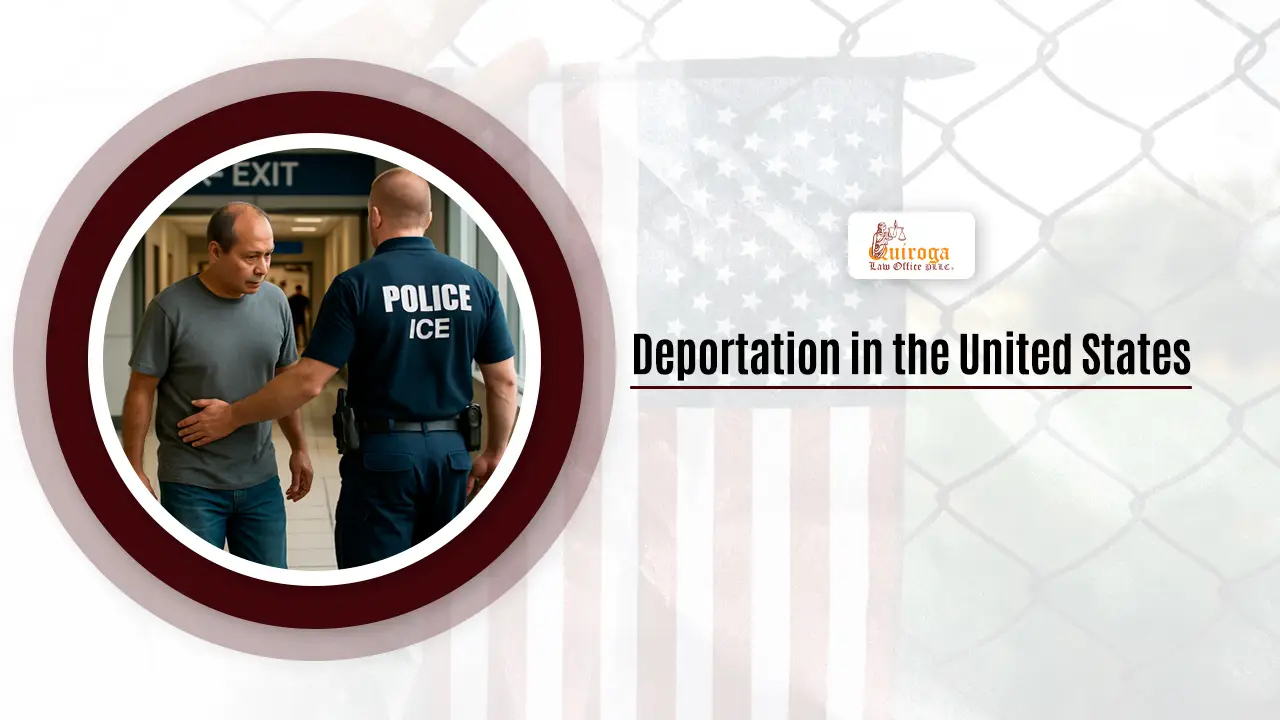Causes, Procedures, and Pardon
Deportation in the United States carries serious consequences for all immigrants, whether they are permanent residents or undocumented.
There are various reasons for deportation, such as entering and staying irregularly in the country or engaging in a serious and immoral crime.
Due to delays in being summoned to court, the processes tend to be lengthy.
Deportation in the United States and Its Procedure
When referring to judicial deportation, it is ordered by a judge or court. It is important to understand that deportation does not follow the same process as an immediate expulsion or ordered removal (USCIS) by the Citizenship and Immigration Service; the procedure varies according to the immigration status and the nature of the crime.
A judge belonging to an immigration court sentences a deportation, but an appeal can be made. It is then the Board of Immigration Appeals (BIA) that will issue a new ruling.
If a deportation has been issued, the first step is to thoroughly understand the crime you are accused of. Secondly, hire a good lawyer, do not miss a court summons, and explore all legal possibilities to avoid being deported from the United States.
Deportation can be deferred by asylum, pardon, domestic violence, or status adjustment.
To apply for and achieve a consensus in deportation, one must meet a series of conditions that vary depending on legal status.
Those who have been charged with a serious crime will not be able to file a request. Each fiscal year, about 4,000 pardons can be granted; this option is granted by a judge.
There are about nine legal processes to confront deportation, including asylum, status adjustment, or domestic violence, among others. In these cases, it is very important to have a good immigration lawyer.
Effects of Deportation on a Foreign National
When a foreign national is deported, they will not be able to enter the United States for an extended period, which can last up to 10 years. If the deported person has broken the law by committing a serious crime, the ban will be for life.
In some cases, the law considers the possibility of managing an exception that allows re-entry to the United States before the punishment period is completed.
In addition to requesting a pardon for deportation, it is also necessary to request it for other penalties, which leads to the possibility of applying for the 245(i) protection granted to migrants with previously approved applications.
When all resources have been exhausted and there is no possibility to appeal against a deportation order, there is a chance to request a temporary extension or suspension before being deported, known as a Stay.
Deportation is Not the Same as Voluntary Departure
The request can be granted depending on the circumstances, but under no circumstances is it considered for persons charged with serious crimes or terrorism.
If granted, the immigrant may re-enter the United States without a time restriction, meaning that voluntary departure is not affected by the penalty of years. One must only meet all the general requirements to be admitted by immigration.
Unlike deportation, which must serve a sentence of years or even decades.
Once voluntary departure is granted, one must leave the United States within the established timeframe to avoid incurring a violation where one can be fined and deported.
Avoid Falling into Further Trouble
The first piece of advice to avoid making more mistakes is to seek the help of a good immigration lawyer and try to win the case.
Never make the mistake of not attending a court appointment; it is an offense to the judge who can order immediate deportation without the right to appear before a judge.
This article is for informational purposes only. It is not legal advice.



